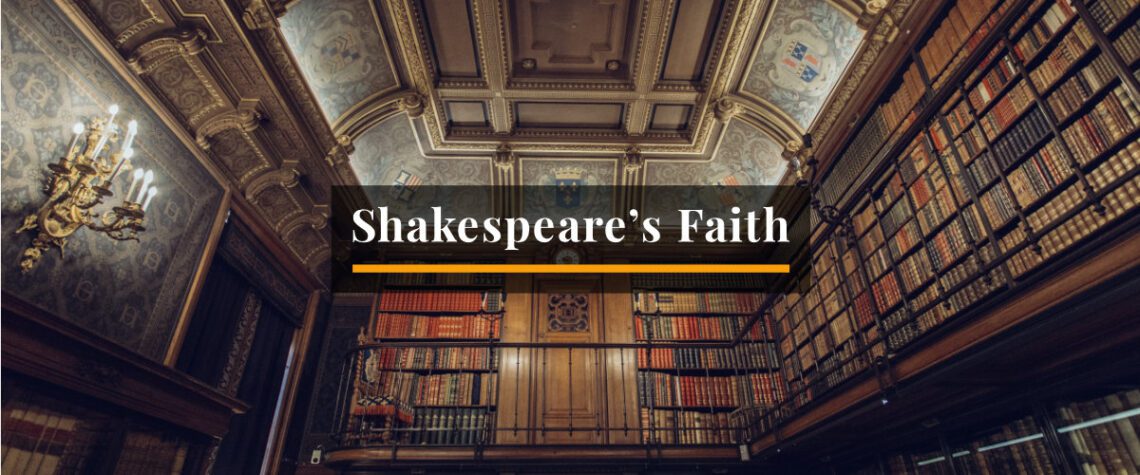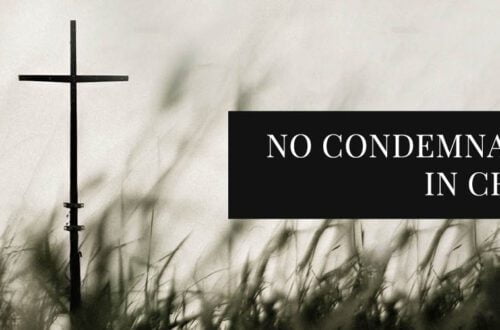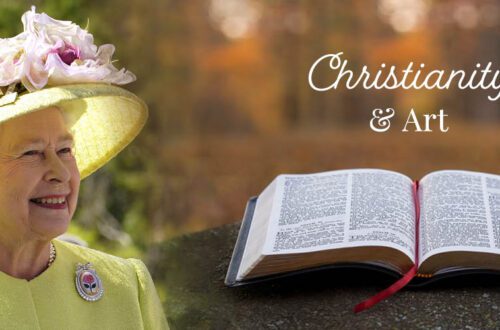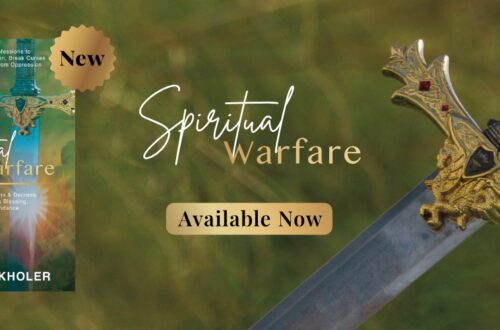
William Shakespeare’s Faith, Bible Quotes and Christian Beliefs
The faith of Shakespeare is similar to the authorship of his plays, still debated. Fortunately, we are confident about several facts concerning his life. William Shakespeare (1564-1616) was a conforming member of the established Church of England, at a time when Protestantism and Catholicism were in great conflict.
Shakespeare was baptised in his local church, Holy Trinity in Stratford-upon-Avon and the parish register documents his involvement in the life of the church, with the births of his three children and the burials of family members.
His last will and testament delivers more than a formal statement. His testimony is spiritual, personal and biblical, claiming salvation, ‘through the only merits of Jesus Christ my Saviour, to be made partaker of life everlasting.’
In the name of God, Amen. I, William Shakespeare .., in perfect health and memory, God be praised, do make and ordain this my last will and testament in manner and form following. That is to say, first, I commend my soul into the hands of God my Creator, hoping and assuredly believing, through the only merits of Jesus Christ my Saviour, to be made partaker of life everlasting, and my body to the earth whereof it is made
– Shakespeare’s last will and testament, 25 March 1616
Shakespeare was fully versed in Scripture and he made 1,300 allusions toward and sometimes direct quotes from Scripture, drawing upon 42 of the 66 books of the Bible. He also reads and quotes from several English Bibles, showing he enjoyed access to and knowledge of various translations of Holy Scripture.
Eve and the Serpent
“Look like the innocent flower, but be the serpent under it”
– Macbeth
Abraham, Father of the Faith
“The sons of Edward sleep in Abraham’s bosom”
– Richard III
Old Testament Prophets
“A Daniel come to judgment! Yea, a Daniel! O wise young judge, how I do honour thee!”
– The Merchant of Venice
Proverbs on Friends
“This pitch, as ancient writers do report, doth defile; so doth the company thou keepest”
– Henry IV, Part I
Christ’s Sacrifice
“O thou side-piercing sight”
– King Lear
Those who are not familiar with the Bible will find Shakespeare’s works cannot be properly appreciated. The title of his 1604 play, Measure for Measure, is drawn from the teaching of Jesus, “and with what measure ye mete, it shall be measured to you again” (Matthew 7:2).
Shakespeare references Jesus’ teaching many times and draws upon biblical themes, summarising ideas and theological concepts. At the end of Hamlet, he speaks about the “special providence in the fall of a sparrow,” embroidering the words of Christ. “Are not two sparrows sold for a farthing? And one of them shall not fall on the ground without your Father. But the very hairs of your head are all numbered. Fear ye not therefore, ye are of more value than many sparrows” (Matthew 10:29-31).
The Passion of Christ
Over whose acres walk’d those blessed feet
Which fourteen hundred years ago were nail’d
For our advantage on the bitter cross
– Henry IV, Part I
Pilate and Guilt
How fain, like Pilate, would I wash my hands
of this most grievous guilty murder done!
– Richard III
Baptism and Forgiveness of Sins
And we will hear, note and believe in heart
That what you speak is in your conscience wash’d
As pure as sin with baptism
– Henry V
The Cloud of Witnesses
His champions are the prophets and apostles,
His weapons holy saws of sacred writ
– Henry VI, Part II
Shakespeare was born into an England turning its back on Catholicism and questions have been raised if he was privately a Catholic. The evidence indicates he was united with his family in embracing a Protestant understanding of Scripture. He and his family accepted the Elizabethan Settlement and some argue his plays promote it. At the time when Hamlet was first performed in the early 1600s, the whole play can be read as a cryptic allusion to the Reformation. Was he entertaining his audience or explaining his beliefs?
When Prince Hamlet encounters a ghost, he responds like a Wittenberg, biblical Lutheran. For a Catholic at the time, a ghost could be a purgatorial ghost, a dead soul seeking rest. For a Protestant believer, a ghost can only be an evil spirit or an angel from God. “Be thou a spirit of health or goblin damned”; you know, are you an angel or are you a devil? “Bring with thee intents from heaven or blasts from hell?” Prince Hamlet and Horatio are subtly arguing over the question of the ghost. Is the ghost an, “it,” or a “he,” an angel or demon created by God, or a Catholic purgatorial soul? It’s a Protestant Catholic question of the era.
This passage shows Shakespeare understood the theological controversies of his time and he includes these questions in his dramas. England’s sixteenth and seventeenth centuries were a time of deep religious thought and change which saturated every part of life. This shows Shakespeare is listening to and engaging with the theological issues of his age.
Trust in God
“God shall be my hope, my stay, my guide and lantern to my feet”
– Henry VI
The Devil Disguised as an Angel of Light
“The devil can cite Scripture for his purpose”
– The Merchant of Venice
Comfort and Faith
“Now, God be praised, that to believing souls / Gives light in darkness, comfort in despair”
– Henry VI, part II
Love and Eternity
“Heaven and yourself
Had part in this fair maid; now heaven hath all,
And all the better is it for the maid:
Your part in her you could not keep from death,
But heaven keeps his part in eternal life”
– Romeo and Juliet
The Cost of Vows
“O Jephthah, judge of Israel, what a treasure hadst thou!”
– Hamlet
Shakespeare was a man of the Bible. He quotes from the Great Bible of 1593 and he equally draws upon the Geneva Bible of 1560, the Bishops’ Bible of 1568, and the Douay-Rheims Bible, from the Latin Vulgate, of 1582-1610.
The Geneva Bible preceded the King James Bible by 51 years and was the Bible embraced by Protestant reformers Oliver Cromwell, John Knox and John Donne, and it was used by many English Dissenters. It also found its way onto the Mayflower, with several pilgrims to North America embracing it.
Knowing the Gospel
“Ignorance is the curse of God; knowledge is the wing wherewith we fly to heaven”
– Henry VI, Part II
On Testing
“I am as poor as Job, my lord, but not so patient”
– Henry IV, Part II
Temptation
“Satan, avoid! I charge thee, tempt me not”
– The Comedy of Errors
Samson, Solomon and Women
“There is no evil angel but Love. Yet was Samson so tempted, and he had an excellent strength; yet was Solomon so seduced, and he had a very good wit”
– Love’s Labour’s Lost
Fighting the Good Fight
“Therefore, friends,
As far as to the sepulchre of Christ,
Whose soldier now, under whose blessed cross
We are impressed and engaged to fight,
Forthwith a power of English shall we levy”
– Henry IV, Part I
On Evil Women
“Fie on him, Jezebel”.
– Twelfth Night
The age of Shakespeare was religious, with no separation of church and state, with preachers and reformers shaping public opinion. Shakespeare’s commission was to entertain and his plays weave from many strands of theology and philosophy, providing answers and questions about his personal beliefs.
When we combine his statement of belief in his last will and testament with the 1,300 allusions to Scripture, we find a man of deep spiritual knowledge. Our greatest playwright did not generally quote the Bible directly but summarised or paraphrased it.
Biblical Love, Compare 1 Corinthians 13:4-13
“Love is not love
Which alters when it alteration finds,
Or bends with the remover to remove.
O no! It is an ever-fixed mark
That looks on tempests and is never shaken;
It is the star to every wandering bark,
Whose worth’s unknown, although his height is taken.
Love’s not time’s fool, though rosy lips and cheeks
Within his bending sickle’s compass come;
Love alters not with his brief hours and weeks,
But bears it out even to the edge of doom”
– Sonnet 116
Working for Satan
“You, mistress,
That have the office opposite to Saint Peter,
And keep the gate of hell!”
– Othello
On Divine Judgment
“Noah’s flood could not do it”
– The Comedy of Errors
God’s Omnipresence
“However wickedness outstrips men, it has no wings to fly from God”
– Henry V
Free Grace versus Works
Those pretty wrongs that liberty commits
– Sonnet 41
God’s Light in the Darkness
“Now, God be prais’d, that to believing souls
Gives light in darkness, comfort in despair!”
– Henry VI, Part II
On Jesus’ Parables
“Thou shalt never get such a secret of me but by a parable”
– The Two Gentlemen of Verona
St Paul’s Teaching
“By the apostle Paul, shadows to-night
Have struck more terror to the soul of Richard
Than can the substance of ten thousand soldiers”
– Richard III
By Paul Backholer. Find out about Paul’s books here.




